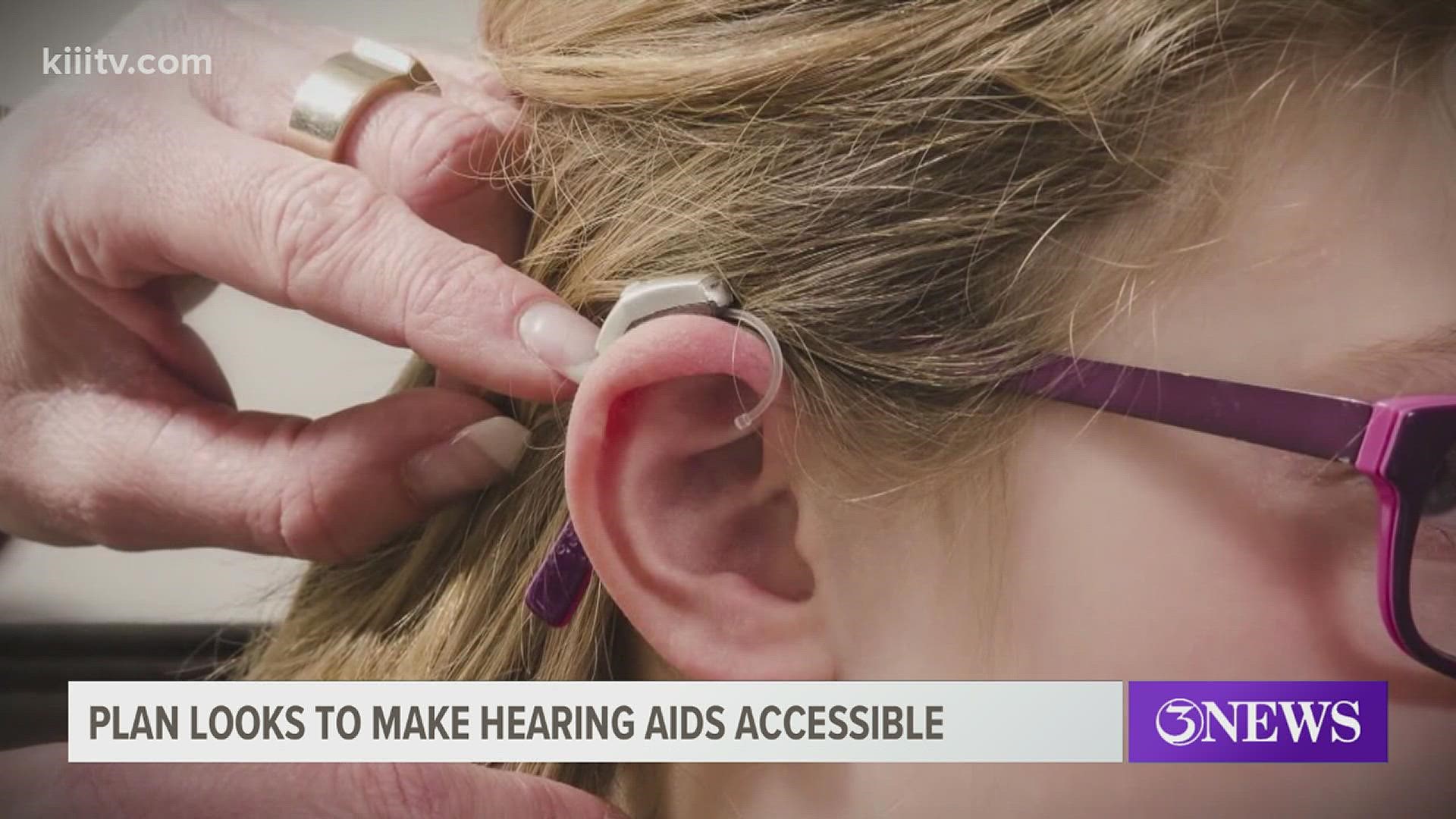CORPUS CHRISTI, Texas — A landmark proposal by the U.S. Food and Drug Administration could have a profound impact on those who use hearing aids, making them more affordable and available to consumers, without requiring a prescription.
The proposed FDA rule has been pushed by three Presidents, beginning with Barak Obama, and would establish a new category of over-the-counter hearing aids which would be sold directly to customers in stores or online without the need for a medical exam or a fitting by an audiologist.
It is a lot like being able to buy reading glasses from a drugstore.
Tom Burnside with the Deaf and Hard of Hearing Center, a non-profit group in Corpus Christi, says it is a move that could help a certain segment of people. According to Burnside, the FDA proposal would most likely benefit those with mild to moderate hearing loss.
The devices would still be regulated by the agency to ensure that they are safe and effective. The hope, however, is that the plan will allow new companies to join the market, thus lowering costs.
“The average price of hearing aids is probably $2,000 to $3,000 each, so you’re talking $4,000 to $6,000 as probably the normal price for a pair of hearing aids,” says Burnside. “But then again, that’s because if you look at them, they are a medical device that is a prescription.”
While the draw to convenience and cheaper prices is often irresistible, Burnside cautions that it should not eliminate the work done by medical professionals. First, because you need to know what is causing your hearing loss, and second, because better hearing is not just about having more volume.
Burnside tells us, “It’s about the tones we hear, it’s not about volume. So, you have to identify the tones and amplify particular tones for someone to actually hear better.”
Keep in mind that you can often get a free hearing test at a Health Fair or even at some medical offices.
Although the FDA declined to set a timeline for finalizing and publishing the new rule, officials say that enacting it quickly is a top priority.

